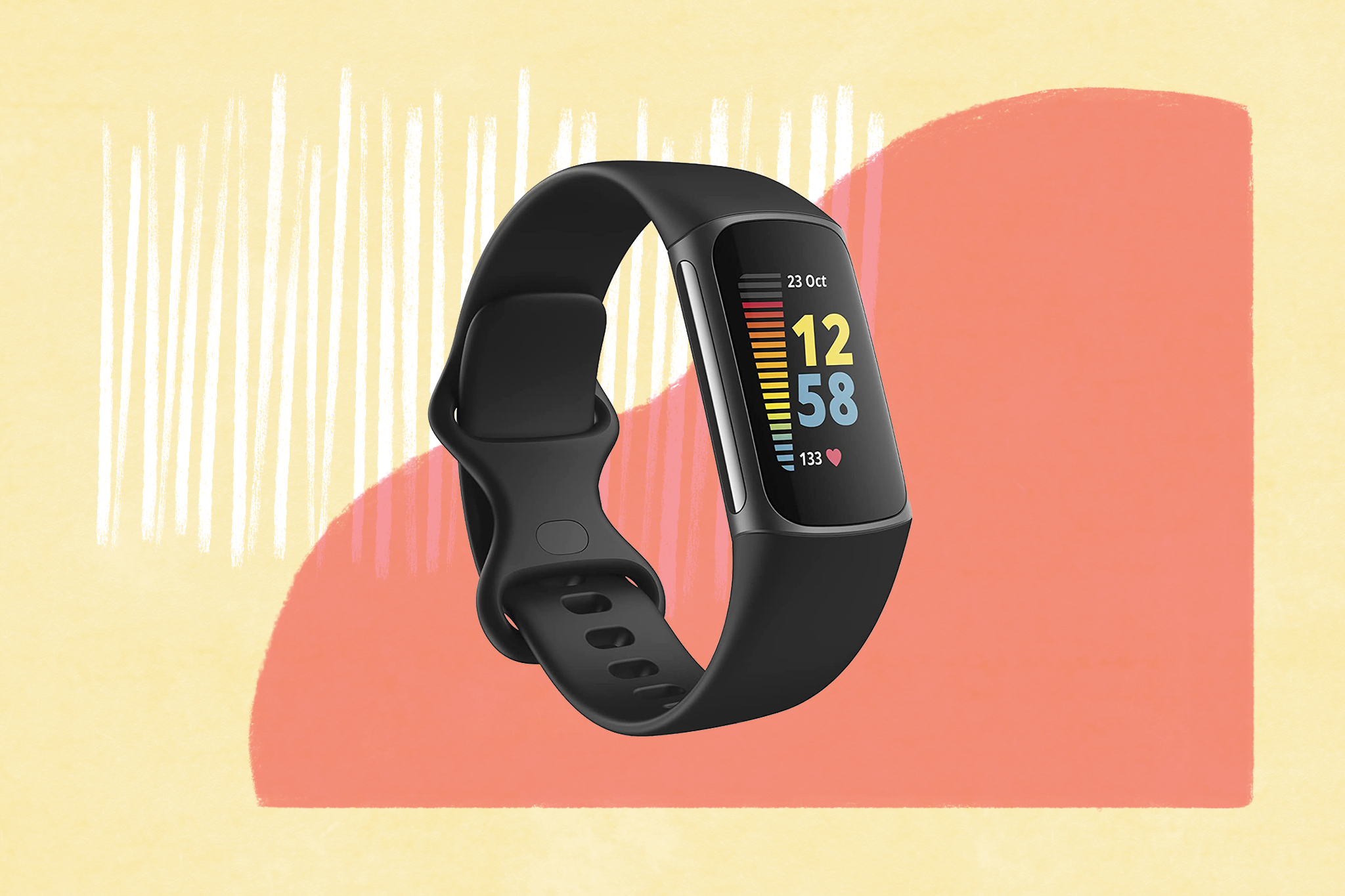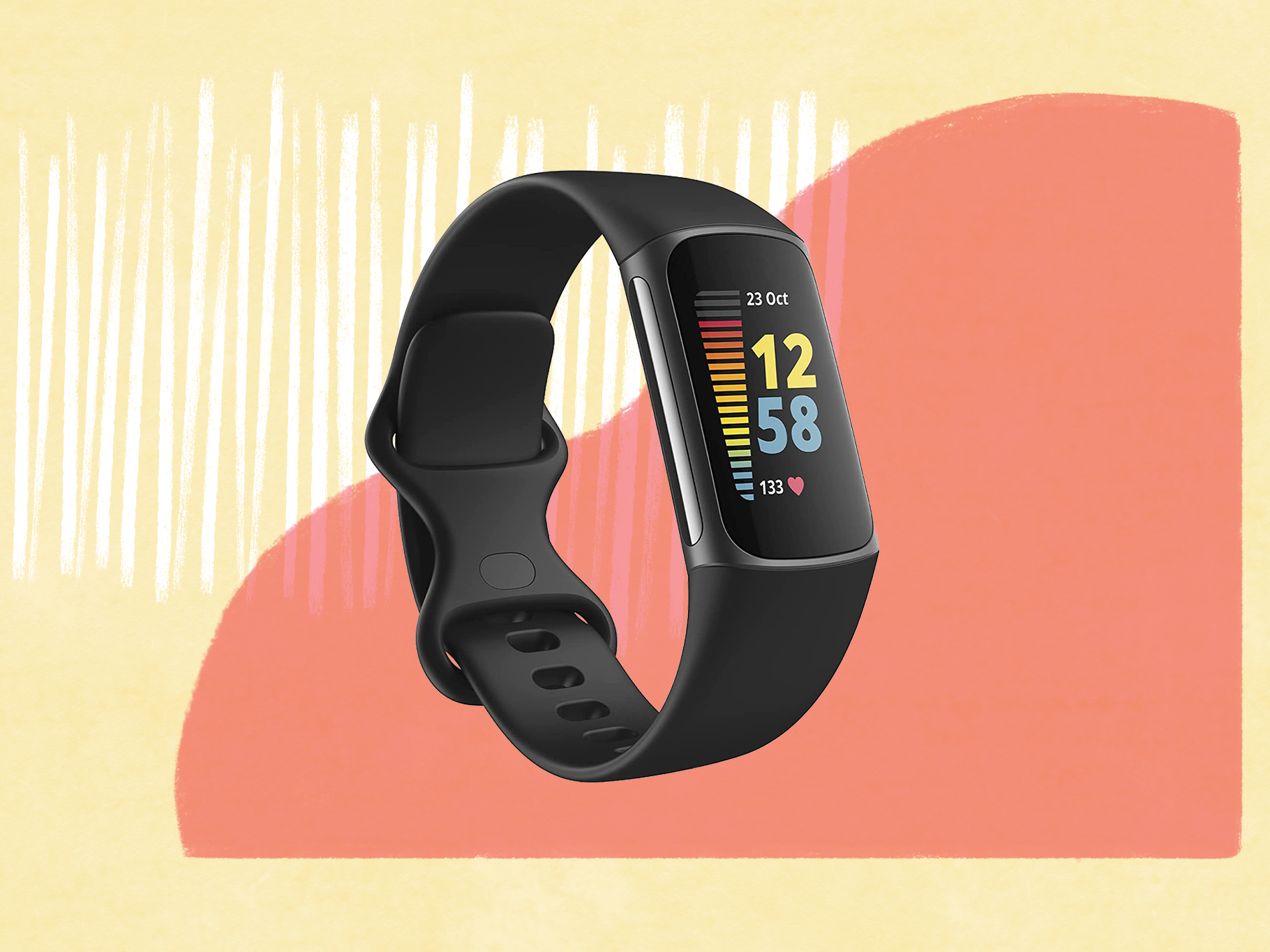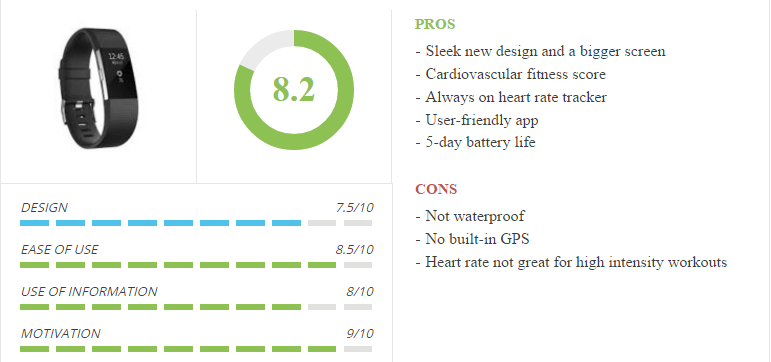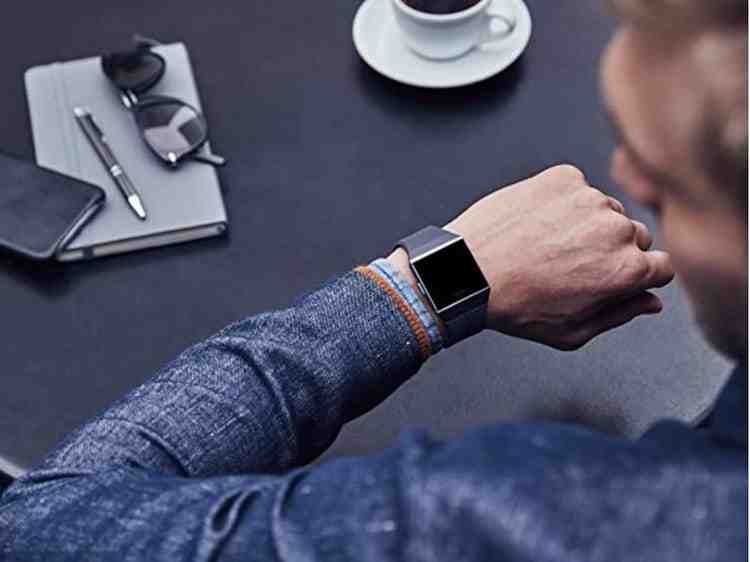Why is my Fitbit marking my wrist?

A Fitbit rash can be an allergic reaction to allergens present in the watch’s own materials. Some of these materials include leather dyes, metals, and rubber accelerators. If you are more sensitive to the substance, exposure to any of these materials can cause a rash on your wrists.
How can I get rid of Fitbit rash? To reduce irritation, follow four simple tips for wear and care: (1) keep it clean; (2) keep it dry; (3) don’t wear it too tight, and (4) rest your wrist by removing the band for an hour after extended wear. For more information visit www.fitbit.com/product-care.
How do I stop my Fitbit from lighting up when I turn my wrist?
JohnnyRow. You can disable ‘Screen Wake’, which prevents the screen from turning on manually, or turn on ‘Sleep Mode’, which does that and a few other things. You can manage both in ‘Settings’, or hold the side button for a few seconds to go to the quick settings.
What does a Fitbit rash look like?
“I noticed this big, red, angry, itchy spot on my wrist,” said Fitbit customer Diane Barlow. “It just looked like a bright red burn,” said Fitbit customer Kim Reichelt. Fitbit recalled the trackers and blamed allergic reactions on the nickel and glue in the wristband.
Is there a new Fitbit Sense coming out in 2022?
The Fitbit Sense 2 looks set to launch very soon, possibly as early as September 2022.
What Fitbit is better versa or sense?
The Fitbit Sense is the company’s health watch and offers ECG, stress detection and a skin temperature sensor. The Versa 3 doesn’t offer any of those features, but it still has SpO2, GPS and all the Fitbit tracking you’d expect. Basically, it means without those new bells and whistles.
Why is my Fitbit making marks on my wrist?
A Fitbit spokeswoman said it’s likely that the wearers are wearing the band too tightly; sweat, water, or soap being held against the skin under the device; or from pressure or friction against the skin,â Reports re/code.
Should my Fitbit leave a mark?
You should not see a red mark where the heart rate sensor is. You may want to make sure that your wristband does not feel too tight and is snuggled enough to be comfortable to wear.
Are fitness trackers a waste of money?
It’s just an expensive piece of jewelry that you’re wearing everyday now. And for that reason, you shouldn’t buy a fitness wearable – save your money. Trackers like the Fitbit Zip are more beneficial for those who need motivation and aren’t currently on an exercise regimen.
How does a fitness band work? Body movements are continuously detected by a wearable tracker on a 3-axis accelerometer. The data is recorded the entire time it is worn and powered on, enabling the tracker to determine whether the individual is walking forward, running fast, or even standing still.
Does fitbit actually help?
The results, published last year in The Lancet Diabetes & Endocrinology, found that after a year of use, a clip-on activity tracker had no effect on the test subjects’ overall health and well-being, even when combined it with a financial account. incentive.
What Fitness Tracker is the most accurate?
The Apple Watch SE performed at the top in our heart rate accuracy tests and provided a reasonable daily step count and reliable GPS tracking. But its battery life only lasts up to 18 hours, while our other picks have batteries that last for multiple days.
What fitness trackers are the most accurate?
In a study of walking data, Fitbit achieved 99.6% accuracy for outdoor walking without hills, and an overall accuracy of 96.4%. It had a repeatability of 0.72 and 0.81 respectively, so overall the accuracy was great and stacked up well against some more expensive rivals.
Is Fitbit or Garmin more accurate?
The tradeoff is that this display is more demanding on battery. Sleep tracking: Garmin and Fitbit can track the different stages of sleep, but in a 2020 study published in Nature and Science of Sleep, Fitbit showed the most accuracy among other commercial brands (along with Oura).
Are fitness watches accurate?
A 2019 study (opens in new tab) by researchers from the Yale schools of nursing and medicine showed that when fitness trackers record sleep and wake times, they are only 78% accurate.
Are fitness watches inaccurate?
Some devices were more accurate than others, and factors such as skin color and body mass index affected the measurements. In contrast, none of the seven devices accurately measured energy expenditure, the study found. Even the most accurate device was off on average by 27 percent.
Are fitness watches accurate for calories?
“Fitness trackers are out of step when measuring calories, research shows,” reports The Guardian. Independent analysis of a number of leading brands found that energy expenditure may be recorded inaccurately.
Can wearing a Fitbit be harmful?

“To offer some perspective, the Bluetooth receiver in a Fitbit tracker emits less than 1% of the power output compared to a typical cell phone. The general consensus is that this exposure is negligible, and does not contribute to any adverse effects.
Is it safe to wear a fitness tracker all the time? Many of these rumors are found in the fact that wearable fitness trackers emit large amounts of electric and magnetic fields (EMF) radiation. This could be dangerous, but as far as modern science can tell – it’s not a cause for concern.
Do FitBits give off radiation?
Some people in our office rely on their FitBits and other wearables to keep their fitness goals on track. All wireless devices, including Fitbit and Apple Watches, emit wireless radiation energy.
Is there a Fitbit that doesn’t emit radiation?
Alternative FitBit: The Bluetooth-Free Fitness Tracker without EMF Radiation. Looking For A FitBit Without Bluetooth Radiation? This vívosmart Garmin HR Activity Tracker is the perfect alternative to the ever popular FitBit and Apple Watch. We’re all wearing this in the office and we think it’s great.
Do Fitbit watches cause cancer?
Have you heard the claim that tech wearables like Fitbit and the upcoming Apple Watch could be a cancer risk? A recent column in the New York Times raised the possibility that the radiation emitted by such devices could be a cancer risk.
Do FitBits cause health problems?
Fitbit products contain electrical equipment that may cause injury if not handled properly. Proper handling includes, but is not limited to, the following: If you experience pain, tingling, numbness, burning or stiffness in your hands or wrists while or after wearing the product, discontinue use immediately.
What are disadvantages of FitBits?
Disadvantages of Fitbit
- Obsession. There is awareness, motivation, competition. …
- Tracking Errors. As with any device, it is not perfect or fool proof. …
- Connection. The device must connect to a smartphone and/or computer. …
- Stands Out.
Can a Fitbit affect your heart?
Cardiologists routinely see patients diagnosed with atrial fibrillation report data from an Apple Watch or Fitbit, says study author Libo Wang, a cardiology fellow at the University of Utah School of Medicine.
Are FitBits cancerous?
Have you heard the claim that tech wearables like Fitbit and the upcoming Apple Watch could be a cancer risk? A recent column in the New York Times raised the possibility that the radiation emitted by such devices could be a cancer risk.
Are FitBits harmful to your health?
“To offer some perspective, the Bluetooth receiver in a Fitbit tracker emits less than 1% of the power output compared to a typical cell phone. The general consensus is that this exposure is negligible, and does not contribute to any adverse effects.
Are fitness trackers any good?

No matter what your goals are, the best fitness trackers are great tools for being more active, getting more sleep, and gaining more insight into your overall health. They can help you track your progress and offer guidance on how hard you should be pushing yourself too.
What are the disadvantages of a fitness tracker? Disadvantages:
- dear Fitness trackers can be expensive to buy. If you don’t use it, you could spend your money on something more useful.
- Battery. Most trackers have limited battery life. …
- Accuracy. Some trackers do not provide 100% accurate metrics/information that may be displayed on the device.
Why you shouldn’t use a fitness tracker?
Another potential problem with fitness trackers is that they can encourage users to ignore their body’s cues and continue exercising when they shouldn’t. “They stop paying attention to how their body feels and if they need rest, if they need movement,” Rumsey said. “It’s more like, ‘Oh, I hit my graduation goals.
Do I really need a fitness tracker?
A fitness tracker could help. Studies show that using a tracker can increase your steps per day by more than a thousand, especially if you are able to track your movement, such as a traditional pedometer or other wearable device, or a smartphone app exercise consistently, especially if you establish a heart-smart daily goal.
Why fitness trackers are doing more harm than good?
Heart rate technology, like the Garmin Body Battery, can be a cause for concern, doctors say. “When patients are nervous or anxious, they sometimes “look at their watch for an answer, and that makes them more anxious, which increases the adrenaline in the body and raises the heart rate higher.” he said.
Are fitness trackers actually accurate?
Tracers were evaluated for a 2019 report in the International Journal of Environmental Research (opens in a new tab) and found that Public Health was more than 10% off when measuring TEE.
Are fitness trackers accurate for calories burned?
“Fitness trackers are out of step when measuring calories, research shows,” reports The Guardian. Independent analysis of a number of leading brands found that energy expenditure may be recorded inaccurately.
Are fitness trackers heart rate accurate?
While some wrist-worn monitors are more accurate than others, studies show they’re generally less accurate than worn heart monitors, says Marc Gillinov, MD, Chair of the Department of Thoracic and Cardiovascular Surgery, who studied the monitors’ accuracy. that. devices.
Is it worth getting a fitness tracker?
A fitness tracker could help. Studies show that using a tracker can increase your steps per day by more than a thousand, especially if you are able to track your movement, such as a traditional pedometer or other wearable device, or a smartphone app exercise consistently, especially if you establish a heart-smart daily goal.
What are the cons of a fitness tracker?
Disadvantages or disadvantages of Fitness Trackers ⨠Some devices do not provide results with desired accuracy. There is a chance of errors, injuries, inaccurate information on diet. â¨Participants in sports and fitness competitions can interfere with the devices.
Why you shouldn’t wear a fitness tracker?

Another potential problem with fitness trackers is that they can encourage users to ignore their body’s cues and continue exercising when they shouldn’t. “They stop paying attention to how their body feels and if they need rest, if they need movement,” Rumsey said.
Is it good to wear fitness trackers? A fitness tracker could help. Studies show that using a tracker can increase your steps per day by more than a thousand, especially if you are able to track your movement, such as a traditional pedometer or other wearable device, or a smartphone app exercise consistently, especially if you establish a heart-smart daily goal.
What are the cons of a fitness tracker?
Disadvantages or disadvantages of Fitness Trackers ⨠Some devices do not provide results with desired accuracy. There is a chance of errors, injuries, inaccurate information on diet. â¨Participants in sports and fitness competitions can interfere with the devices.
Why you shouldn’t use a fitness tracker?
Another potential problem with fitness trackers is that they can encourage users to ignore their body’s cues and continue exercising when they shouldn’t. “They stop paying attention to how their body feels and if they need rest, if they need movement,” Rumsey said. “It’s more like, ‘Oh, I hit my graduation goals.
Where should you wear your fitness tracker?
Wear your device on top of your wrist. For best results, the back of your device should be in contact with your skin for features like heart rate tracking. Make sure your band is not too tight. Wear it loose enough that it can move back and forth on your wrist.
Where should you wear your Fitbit If you are not on your wrist?
Can You Wear Fitbit Somewhere Other Than Your Wrist? Fitbit can be worn anywhere on your body, as long as it is attached to a band. You can attach the device to a belt, bra, or any other article of clothing. Fitbit’s manufacturer recommends wearing the gadget on your non-dominant wrist.
Can I wearing fitness tracker on inside of wrist?
Maximize Comfort and Performance. Wear the Fitbit on whichever wrist you prefer. For most users, Fitbit recommends wearing the tracker on your non-dominant side. However, the decision is ultimately up to you.
Why you shouldn’t wear a Fitbit?
Some of the different models have gained a bad reputation for skin irritation, burns and wrist pain. Some of these have been attributed to allergic reactions to the metals used, but many other symptoms associated with the use of Fitbit fitness trackers can easily be attributed to the EMF radiation from the devices.
Are Fitbits cancer? Have you heard the claim that tech wearables like Fitbit and the upcoming Apple Watch could be a cancer risk? A recent column in the New York Times raised the possibility that the radiation emitted by such devices could be a cancer risk.
Does a Fitbit emit radiation?
All Fitbit devices emit very little radiation. It is safe to use your tracker while you are pregnant. The power output of Fitbit is extremely low: about 0.5% – 1% of the output power of a mobile phone.
Is there a Fitbit that doesn’t emit radiation?
Alternative FitBit: The Bluetooth-Free Fitness Tracker without EMF Radiation. Looking For A FitBit Without Bluetooth Radiation? This vívosmart Garmin HR Activity Tracker is the perfect alternative to the ever popular FitBit and Apple Watch. We’re all wearing this in the office and we think it’s great.
Is it safe to sleep wearing a Fitbit?
We recommend wearing your device in a snug wristband while sleeping; don’t wear your device in a clip or a crocodile accessory. When your body is completely at rest and you haven’t moved for about an hour, your Fitbit device records that you are asleep.
Can a Fitbit mess with your heart?
Comparison results from rest and exercise, including jumping rope, treadmills, outdoor jogging and stair climbing, showed that Fitbit devices calculated heart rates up to an average of 20 beats per minute during more intense exercises.
Can a Fitbit pick up heart palpitations?
The Fitbit Versa And Ionic Smartwatches Can Now Detect Irregular Heart Rhythm | Coach.
Can wearing a Fitbit be harmful?
“To offer some perspective, the Bluetooth receiver in a Fitbit tracker emits less than 1% of the power output compared to a typical cell phone. The general consensus is that this exposure is negligible, and does not contribute to any adverse effects.